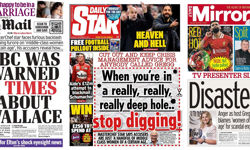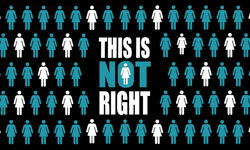Our digital strategy at BBC Magazines is simple: to take our brands and content to wherever there is an audience and to identify the best products with the most relevant commercial models for that platform.
We’ve been setting the digital agenda since last year for publishing magazine apps on the tablet: both the Good Food and Focus magazine apps are ranked at 4.5 stars in the app store and are outperforming sales expectations to date. Our magazine subscriptions team have just rolled out a platform allowing us to sell subscriptions to our own digital magazines and apply years of experience selling print magazine subscriptions to digital. We have just launched a Lonely Planet site dedicated to selling the magazine which is outperforming on visitors by 100%. And from January, we’ll start contract publishing digital magazines for third parties - the first is our children’s app for Spellbound’s Koala Brothers.
And our latest adventure? The UK’s biggest-selling quality magazine, Radio Times, is launching a new website for the next generation of television viewers.
One-stop shop
The site is a “one-stop shop” for what’s on, entertainment news, views, recommendations, videos, sneak previews and reviews – offering suggestions based on users’ viewing habits, as well as their friends’ and Radio Times’ own team of critics.
RadioTimes.com will not only cover what’s on television tonight, but will also offer an improved listings grid that can be navigated backwards to give the best coverage available for catch-up and on-demand services, including BBC iPlayer, ITV Player, 4oD and Demand 5.
And the new site’s “killer app” is our innovative Watchlist. Follow your favourite shows and films and the Watchlist will tell you the next time they’re on, when they’re repeated, where they can be found on demand – and even when the new series starts.
The naysayers who claimed that the internet was killing off television might currently be eating their words; perhaps contained in a rather tasty TV dinner. In fact, average viewing hours per week went up by 2.5 hours last year (Thinkbox, May 2010) to an impressive 30 hours and watching TV is still the highest ranked media activity for 16–24 year olds (Ofcom and Gfk ‘Consumer Digital Day’, December 2010).
What is changing is how we watch television; 15% of all TV viewing is now via PVR; BBC iPlayer is currently delivering 162m streams a month and by 2015, 30% of the UK’s TVs will apparently be IP enabled.
And what we’re doing while watching TV is changing rapidly – already 55% of us use the web to comment on shows while watching (You Gov, August 2010) – and it’s worth noting that in the US this figure is even higher, so it’s also set to grow in the UK.
In short, rather than spelling the end of television, the web is joining us on the sofa. Here at Radio Times, a brand which has been keeping that sofa warm for decades, we believe we can unite the tradition of TV viewing with the new opportunities that digital offers, to continue to build a more enjoyable and informed experience for the next generation.
These days, with more than 400 linear channels, catch-up TV, on-demand players and online movie aggregators to choose from, the need has never been greater for an authoritative, trusted, impartial, knowledgeable guide to help filter this plethora of choice. With the advent of so many ways to consume TV, the time has never been better to give RadioTimes.com a facelift.
But how do you take a near-nonagenarian, best-in-class magazine and make it relevant in today’s digital age?
Our first task was to understand that digital development encompasses much more than a website. Our end game is to see the Radio Times brand appear on any platform where TV may be consumed: mobile phones, tablets, IPTVs, games consoles, PVRs and on-demand players. Our website investment has allowed us to build the foundations to follow the customer, wherever they may be, as quickly as we can.
Next, we had to visualise the role of listings in a digital universe. This stage was all about translating Radio Times’ three core brand pillars into a digital offering and understanding how our market-leading position in the magazine universe can be improved via technology, interactivity and functionality.
1. Better listings than anyone else
Our digital listings are shared with the magazine, offering the most up-to-date and reliable data such as cast and crew lists, whether it’s a repeat and when the show is next being broadcast.
Additionally, in recognition of the importance of catch-up TV, our digital listings show not only the next two weeks but also allow users to go back in time, and search by episode. We also display on-demand opportunities where they are available on each programme page.
In the future, we’ll be adding genre filters not just on linear scheduled programming but across catch-up and on-demand services too, so if you only want to see comedy programmes, you’re laughing. You can also set your TV provider, thus filtering out Sky Atlantic’s programmes if, like me, you’re a Virgin customer and select your TV region to ensure the listings are right for your area.
By using a powerful metadata tool, our pages go right down to episode level covering detailed information including title, synopsis and full cast and crew members for every single episode of a programme, as well as where it will next be broadcast.
2. Expert guidance is joined by personalisation
Radio Times has always offered expert guidance, catering to all tastes and completely neutral to any broadcaster, and those recommendations are at the heart of the new site.
In addition, the site will start to build a picture of the programmes and films you like. We log everything you do on the site, each click you make, or programme you roll over, to start to create recommendations just for you. On top of that, you can create a Watchlist so we can tell you when a programme you follow is on, every time it’s repeated, when it will be on catch-up and where and when it is available to purchase. Soon, we’ll be able to replicate this with your favourite actors, writers and directors. The recommendations section soon becomes unique to you across those 400 channels, catch-up and on-demand.
Everyone is aware of how the social media space is affecting how we watch television. If you look at Twitter in the evenings, the top trending topics usually reflect what’s showing on TV at that moment. We’ve integrated interactive media into the site, so if you log in to the new RadioTimes.com via your Facebook account, we can take your TV and film “likes” and use them to help surface programmes to you. We’ll also highlight the programmes which have the most ‘buzz’ – not just the buzz on Radio Times, but also across the key social networks, displaying what people across the UK are talking about in real time.
Never again will you be at the water cooler feeling left out while your colleagues dissect the latest drama, scandal or reality TV faux pas. If you missed the show everyone’s talking about, we can direct you to it on catch-up.
3. Top-class content
In addition to the listings tools, the new digital Radio Times will continue to deliver entertaining and informative content, benefiting from being a companion to one of the best connected magazines in TV.
The site’s topical output will increase because we’ve invested in the news desk, allowing us to react more quickly to the day’s news. Our content will be richer: accompanying our TV reviews will be more video, more images and, of course, more clips from most of the major broadcasters. There will also be trailers for the latest cinema releases.
We’ll have more features because our infrastructure is faster, bringing more productivity and an increased ability to create response pieces to programmes as they air. Comments from our informed community will add another dimension to our news and features.
The magazine team are now regularly creating content for the website as they engage with readers, break stories that can’t wait until the next issue, provide comment for our social media feeds and react daily to topics in their specialist areas.
Where next?
As we continue to develop the site, new features will be added making the service “addictively useful” - an indispensable tool ensuring you never miss a thing.
Imagine coming to a Radio Times website, app or EPG that immediately gives you the programmes specially selected for you to watch right now, throughout the evening, and over the next couple of weeks, and filling any gaps for you with on-demand shows that you might have missed or want to see again?
Imagine if you get that information on a train as you head off for a weekend and can click a button and set your PVR remotely?
Imagine if you have personalised information in front of your TV that you can use to control channels?
Imagine if you can see what your friends are watching or planning to watch?
Imagine if key Radio Times celebrities and editors could share their personalised TV schedules with you and you could watch along with them?
The demands for how we consume television and film are changing so rapidly at the moment that it’s hard to be certain where it’s all going to take us long term. What we do know is that Radio Times will be helping to make sense of the choices. To twist the words of Mark Twain, reports of the death of TV are “greatly exaggerated”, but for one of the biggest stars of television, a regeneration is no bad thing.










